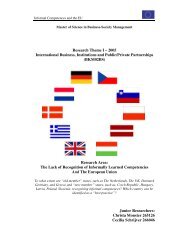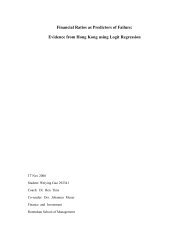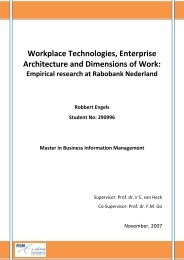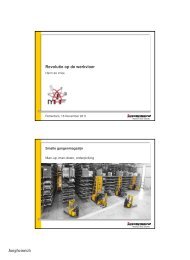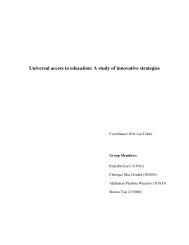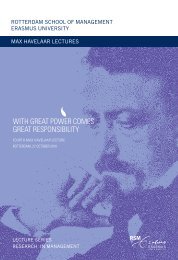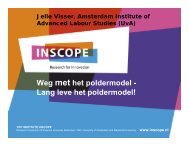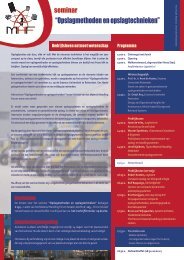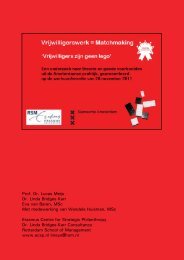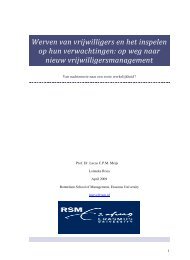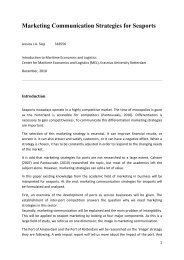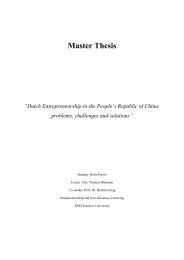here - ERIM - Erasmus Universiteit Rotterdam
here - ERIM - Erasmus Universiteit Rotterdam
here - ERIM - Erasmus Universiteit Rotterdam
Create successful ePaper yourself
Turn your PDF publications into a flip-book with our unique Google optimized e-Paper software.
A validation Study of House of Quality key performance indicators<br />
Chapter 4 - Results Empirical Study<br />
The research methodology for this research study has been discussed in chapter 3. This chapter<br />
presents the results of the empirical study. Section 4.1 discusses the results of the exploratory<br />
research. It presents the identified member’s needs, indicated as performance drivers, and the<br />
assumed relationships to the overall performance of the online union. Based on the explored items,<br />
propositions are formulated and tested by an online survey. Section 4.2 presents the statistical<br />
analysis of the survey and will validate the needs of the members. Data gat<strong>here</strong>d by the online<br />
survey will be processed into the House of Quality. The composition and analysis of the House of<br />
Quality is described in section 4.3.<br />
4.1 Phase I: Results exploratory research<br />
This section discusses the exploratory research to the needs of the members. The needs can be<br />
indicated as the performance drivers of the online union. The performance drivers are considered to<br />
affect the overall performance of the online union. The literature research as described in chapter 2<br />
functions as the first part of the exploratory research. Based on the literature review, a conceptual<br />
model was established. The most important element in the exploratory phase are the interviews with<br />
employees and the members of the online union, in order to investigate the needs, and t<strong>here</strong>fore the<br />
performance drivers of the online union.<br />
As discussed in previous chapters, the SERVQUAL model will be used to measure the quality of<br />
services offered by the online union. The SERVQUAL model is described to be applicable to a wide<br />
variety of service organizations and offers options to reword some of the items in order to create a<br />
fit with a specific context (Parasuraman et al, 1988). This particular research study for the online<br />
union is highly specialized. We expect that one or more attributes of the current SERVQUAL model<br />
will fit not with the context of the present research study. By qualitative research we expect to<br />
identify several new attributes which are highly related to online services. This leads us to the<br />
following proposition:<br />
Proposition 1: By qualitative research we expect to explore new SERVQUAL attributes that<br />
are specifically related to online services, not present in the current set of attributes of the<br />
SERVQUAL model, and that influence the overall performance of the online union.<br />
Besides interviews with union experts and members of the online union, value information for this<br />
particular research can be gat<strong>here</strong>d by an exploratory benchmark study. A benchmark study<br />
compares the activities and/ or performance of competing companies or companies in different<br />
49




